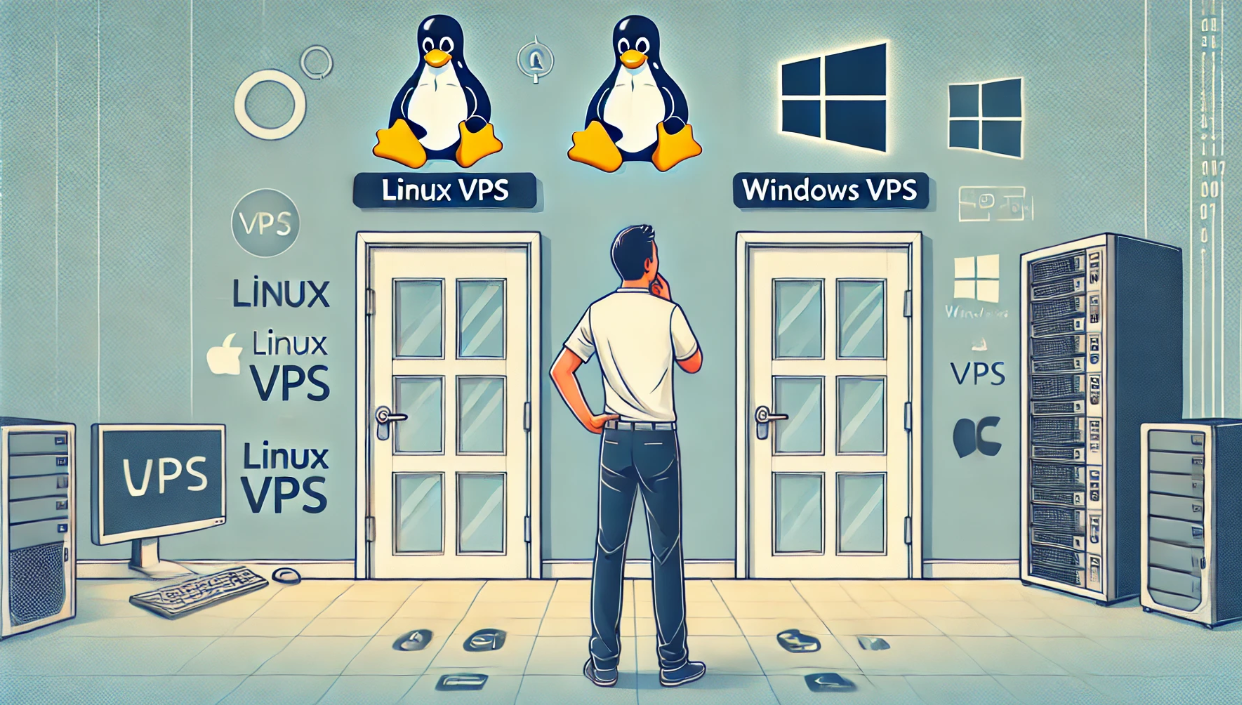Linux vs Windows VPS Hosting: Which One Is Right for You?
Meta Description: Choosing between Linux and Windows VPS hosting? Explore the pros, cons, and best use cases for each to find the perfect fit for your website, app, or development environment.
Introduction: One VPS, Two Operating Systems
When it comes to VPS hosting, the operating system (OS) you choose can make a big difference in your performance, compatibility, and development workflow.
The two most popular options are:
-
Linux VPS Hosting
-
Windows VPS Hosting
Each has its own strengths, limitations, and ideal use cases — and choosing the right one depends on your project goals, technical needs, and familiarity.
Let’s break down the pros and cons of Linux vs Windows VPS hosting to help you decide which one is best for you.
⚙️ Quick Comparison Table
| Feature | Linux VPS | Windows VPS |
|---|---|---|
| License Cost | Free (open-source) | Paid (Windows Server license) |
| Control Panel Support | cPanel, Plesk, Webmin, CyberPanel | Plesk (mostly) |
| Best For | PHP, Python, Node.js, LAMP/LEMP | ASP.NET, .NET, MSSQL, Windows apps |
| Command Line | Terminal (Bash, SSH) | RDP + Command Prompt/PowerShell |
| Stability | Very stable, fewer restarts | Stable, but heavier resource usage |
| Security | Strong with regular updates | Good, but more attack surface |
| Ease of Use | Requires CLI knowledge | Familiar for Windows users |
| Community Support | Massive open-source community | Microsoft documentation/support |
Linux VPS Hosting – Open Source Power and Flexibility
✅ Pros:
-
Free OS = Lower cost hosting
-
Wide support for open-source stacks (LAMP, LEMP, MEAN)
-
Lightweight and fast — ideal for optimizing performance
-
Extremely stable and secure
-
CLI access via SSH for power users
-
Huge community support (Reddit, Stack Overflow, GitHub)
❌ Cons:
-
Requires command-line knowledge (especially for unmanaged VPS)
-
Not compatible with Windows-only applications
-
Learning curve for those used to GUIs
Best Use Cases:
-
WordPress, Joomla, or Drupal sites
-
Web app development in PHP, Python, or Node.js
-
Developers looking for performance and control
-
Hosting email servers, Git repositories, Nextcloud, etc.
If you’re a developer or tech-savvy site owner, Linux VPS is fast, flexible, and budget-friendly.
Windows VPS Hosting – GUI-Based Hosting for Microsoft Stack
✅ Pros:
-
Native support for .NET, ASP.NET, MSSQL
-
Compatible with Microsoft frameworks and software
-
Remote Desktop (RDP) access with full GUI experience
-
Easy to manage for users familiar with Windows environments
❌ Cons:
-
License costs make it more expensive
-
Heavier on system resources (needs more RAM/CPU)
-
Fewer hosting control panel options
-
Smaller open-source ecosystem
Best Use Cases:
-
Applications built on the Microsoft tech stack
-
Businesses using Access, SharePoint, or Exchange
-
Developers working with Visual Studio or .NET Core
-
Teams that require GUI-based server interaction
Windows VPS is best for teams working with Microsoft apps and services, or those needing remote desktop functionality.
Which VPS Should You Choose?
| If You Want To… | Go With |
|---|---|
| Run a WordPress or PHP-based site | Linux VPS |
| Host ASP.NET or .NET Core apps | Windows VPS |
| Save on costs with an open-source OS | Linux VPS |
| Use Remote Desktop for full GUI access | Windows VPS |
| Manage a mail server or run Docker | Linux VPS |
| Run Microsoft SQL Server | Windows VPS |
| Use command line and automation tools | Linux VPS |
Managed vs Unmanaged: Consider the Learning Curve
No matter the OS, VPS hosting often comes in two flavors:
-
Managed VPS: The provider handles updates, security, backups, and monitoring.
-
Unmanaged VPS: You’re responsible for setup, maintenance, and troubleshooting.
If you’re not confident managing your server, a managed Linux or Windows VPS may be your best choice — especially for business-critical websites.
✅ Final Thoughts: Your Project, Your OS
Both Linux and Windows VPS hosting are powerful — but they shine in different situations.
-
Choose Linux for flexibility, speed, and cost-effectiveness.
-
Choose Windows if your apps depend on Microsoft technologies or GUI-based workflows.
Understand your project needs, technical comfort level, and budget — and you’ll choose the right VPS hosting every time.

